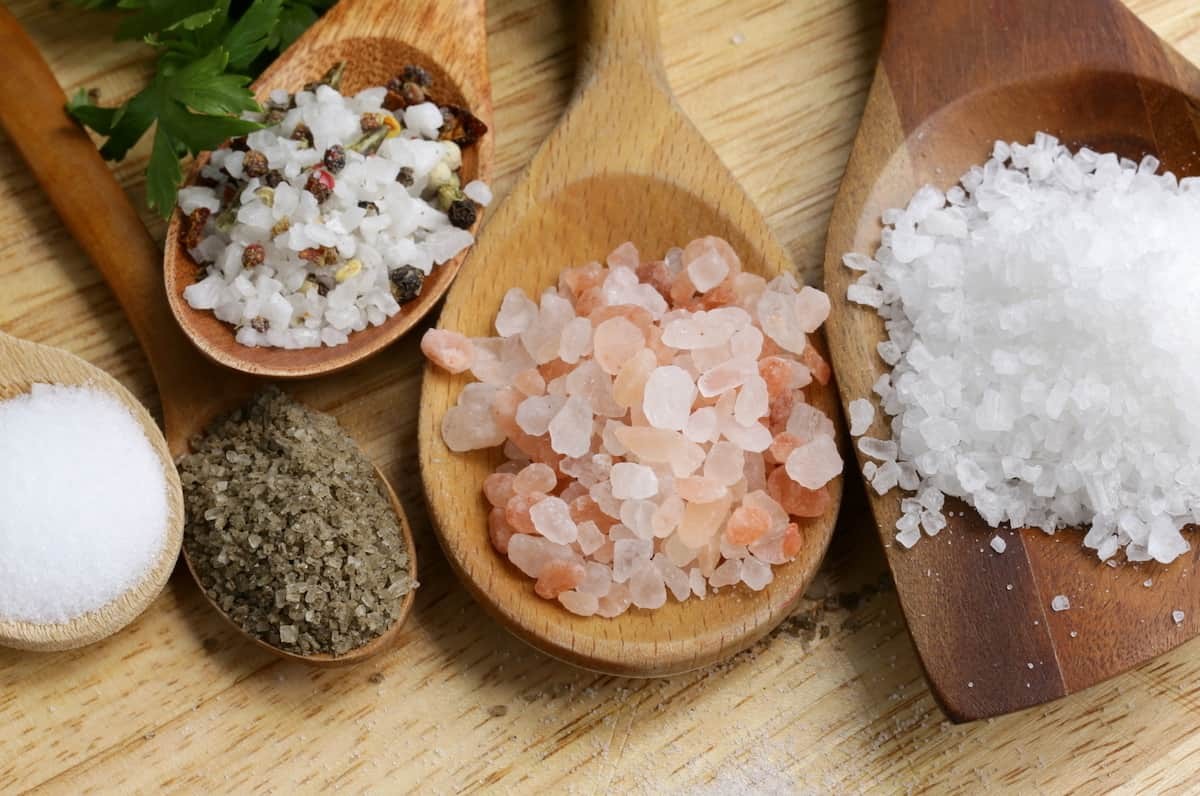Salting your meals isn’t quite as simple as throwing it into a dish and hoping for the best, so we rounded up 10 practical pointers that will assist you do it correctly.
- For many cooking programs, kosher salt ought to be your go-to salt
Kosher salt has crystals that dissolve rapidly and are free of odd flavors. Table salt, on the other hand, is much nicer and a little goes a very long way. Table salt frequently contains extra additives (such as anti-caking components ) that may slightly change the flavor. This sort of salt is ideal for maintaining on the table so people can put it on high in meals, although not for real cooking.
- However, other kinds of salts do come in handy.
Though kosher and table salts are the most well-known varieties, they are not the only ones. Flake salts (for instance, Maldon) are utilized for completing dishes and include a wonderful crunchy texture. More market salts, such as black or pink varieties, can include a slightly different taste and each have their own special attributes. The best way to locate one that you love is to just try them out.
- Season throughout each step of the cooking process…
After a recipe, be certain you season your meals during each step. This will aid your final dish flavor balance and let every taste to popup. If you are creating a soup, as an instance, season the veggies, the broth, and the full mix as it is bubbling away so that you construct a totally balanced dish with tastes that glow.
- But be sure that you don’t overdo it. You may always add salt, but you can not take it off.
As you are seasoning your food, keep in mind that you may (and should!) Still season in the end — thus do not believe that you have to bring all your salt during cooking. You may always add more salt in the conclusion, but you can not take it away — thus season caked during each step and aggressively (if need be) in the end.
- But if you do accidentally add too much, then consider incorporating an abysmal liquid to lean it out — also do not buy into the old”curry trick”
The only way to greatly lower the salt amount of a dish is to dilute it with something unseasoned. By way of instance, if your pasta sauce is too salty, then including additional unseasoned tomato sauce might help balance it all out. The old expression that a couple of balls of peeled potatoes will help loosen up extra salt isn’t actually correct. The potatoes will consume salty fluids, however they will not soak up surplus salt just like a magical sponge.
- If you are salting the face of something season from top over to evenly disperse the salt.
Apart from looking cool, seasoning foods from top over lets you evenly disperse salt over the face of something without end up with stains which have too much or too small. That is the reason you see chefs performing so — not because it is trendy, but since it is sensible .
- Bear in mind that salt isn’t only for seasoning but can play a vital part in several recipes.
While the salt chef job is to add flavor to a dish, it occasionally plays a practical role in the authentic recipe and can’t be removed. For some things, such as eggplant, salt may be used to draw excess moisture out. Additionally, it is commonly utilized to brine things (like poultry) to assist them maintain moisture.
- Based on what ingredients are in your dish, then you might not have to add quite much salt.
Some components — like soy sauce, capers, and olives — contain a high quantity of salt, which means that you can practically treat them like they are salt in a dish. Should you use enough of an already salty ingredient, then you might not have to add quite much salt, or any whatsoever.
- Sweet pieces, like desserts, gain from appropriate salting, also.
Consider salt for a flavor enhancer rather than a genuine taste. Salt can take candy things to another level and allow their tastes shine — and it may balance sweetness too. If you have ever had a chocolate bar, you understand that. When preparing baked goods or alternative sweets, ensure that your recipe includes salt to help round out the flavors.
- Salt lasts pretty much forever, so don’t worry about it going bad — but experienced salts do go bad
Unless your salt becomes wet and begins clumping together, there is no reason to fret about it going bad. But, seasoning salt (the type with seasonings mixed in) can seem bad. A general guideline for most floor spices is they ought to be chucked following two to three years. An expired seasoning salt will reduce it’s flavor, color, and may even start to taste awful — so be sure that you check the expiration dates.


